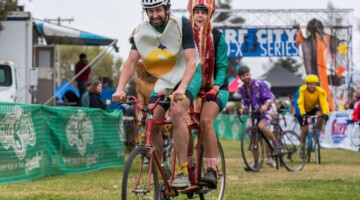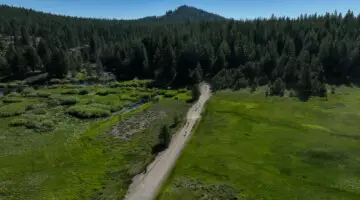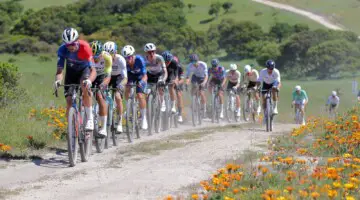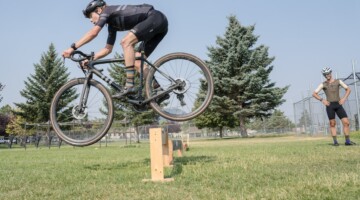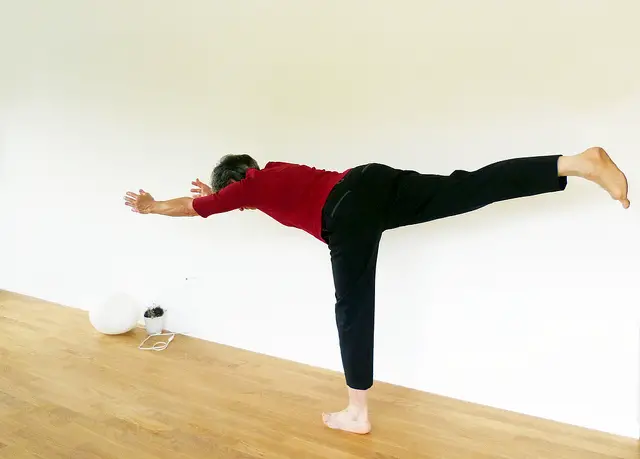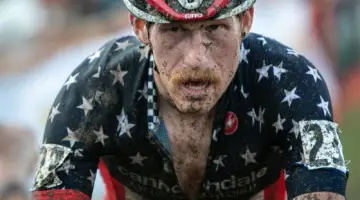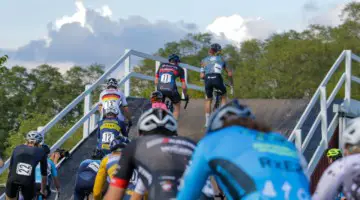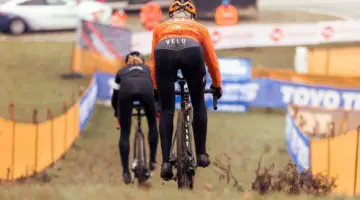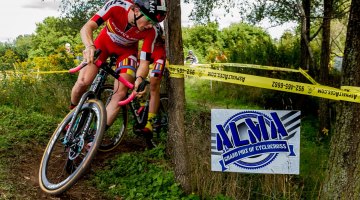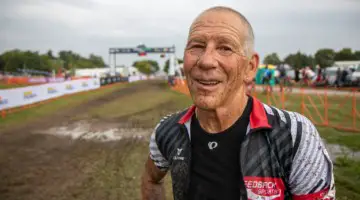Whether you raced 2017 Nationals, have road or mountain bike goals or just hope to improve on this past cyclocross season, coach Mayhew of JBV Coaching has some helpful tips to make the most of the offseason in this week’s Training Tuesday piece. Today, he’s focusing on your mental muscle and mental game, and his helpful advice could apply to more than just bike racing but life in general. Study up!
In editing my last article on how to enjoy and leverage the offseason, Jason Mott suggested I make a clear case for a mindfulness practice, since that’s essentially what I was doing. I felt like instead of throwing that into the last paragraph, I’d write an entire article about the subject. Hopefully this time of year you’ve got a reduced training load and have time and energy to focus on new things, such as a mindfulness practice. Perhaps more importantly, that mindset isn’t going to take place over night. You need time to learn and instill new habits. I’ve been doing it for years in yoga but I now find myself taking a few deep breaths in a seated position to warm up for Crossfit. You can’t be calm on the start line in September if you don’t start practicing being calm now in a low-risk environment.
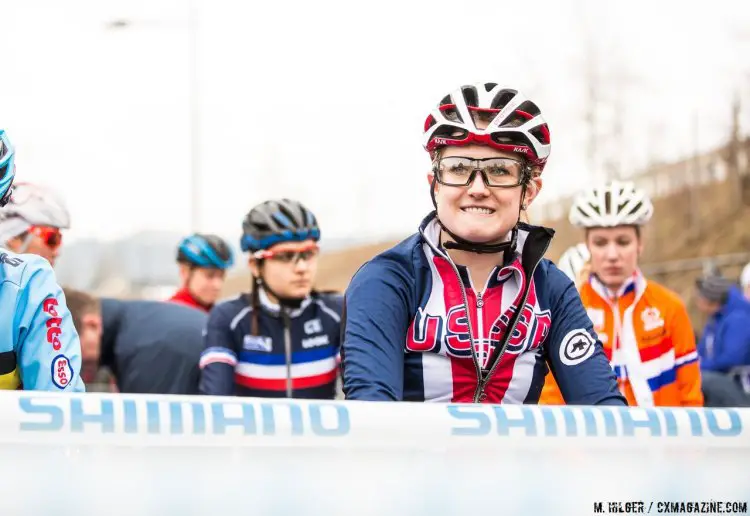
Noble uses mental training the mindfulness practice in her race prep, and it paid off with a great season. photo: U23 Women, 2017 UCI Cyclocross World Championships, Bieles, Luxembourg. © M. Hilger / Cyclocross Magazine
Let’s start by defining our terms. What do I mean when I say mindfulness? Practically, I mean the ability to listen to your body and hear what it has to say. Are you nervous? Scared? Excited? Apprehensive? Let’s acknowledge those and not push them aside, label them as bad, or feel they determine our future results. That’s mindfulness. The ability to stay in the moment and not think about other things, past or future, is another part of being mindful. Other related terms are Zen, flow, and compartmentalization. If you really need some shorthand, Episodes IV, V and VI of Star Wars and their discussion of the Force is basically Buddhism with Muppets. Close enough:
You might be saying, “OK hippie, why on earth would I take time to do that when I could be riding my bike?” That’s a good question and I’m glad you asked. You can have all the form in the world, but it won’t matter if you freak out when your preparation didn’t go perfectly. As a practical matter, the course at Nationals in Hartford this year was changing every day, or even every race. USA Cycling even announced course changes at the line that some racers didn’t get to pre-ride:
“You can’t be calm on the start line in September if you don’t start practicing being calm now in a low-risk environment.”
Some people need to know exactly what they are facing in order to be comfortable with their preparation. However, if you can acknowledge your apprehension about the unknowns of your race, not let that fear overwhelm you, and just react to things on course as they actually happen, you’ll be able to actualize the form and preparation you’ve worked so hard on.
To give a less pressure-filled example, I use mindfulness to get through intervals all the time. Long workouts both bore and intimidate me; if I just focus on each pedal stroke as it comes and not think about the entire block, it turns out I can get through it pretty well. You can hear about that mindset in the video below, which I also referenced in my last article:
How do you go about creating a practice? There are a million different ways to do it. Yoga, as I’ve advocated before in an earlier article, is a great place to start. It’s physical and keeps you moving so you can rationalize it as “exercise,” but the really great benefits will seep in over time. And yoga is a low-key place to get started. Just focus on holding a pose and how it feels. If you fall over, it’s no big deal and you can get up and try again. You can actually engage in a specific practice via Headspace, among other things. If you’re skeptical, or just want some good resources, check out anything by Dr. Kristin Keim (Facebook, Twitter, Instagram and Medium), sports psychologist to the stars. If you want to see how athletes implement her advice, dig through the Instagram accounts of Ellen Noble, Stephen Hyde, and Jeremy Powers, or listen to Episode 16 of Crosshairs Radio with Dr. Keim for her side of it (and then listen to Episodes 10 and Episode 34 with Hyde and Noble, respectively, to hear how they implement that advice).
The main thing is to find one small thing that works for you that you can do on a regular basis, say 1 to 3 times a week for 5 to 10 minutes. You want to start now, when there’s little to no pressure on you. You’ll need to do it a lot to form new habits and make sure they’re ingrained and second nature by the time you actually need them. Once you start training you can work on it during intervals as well, which is a safe simulation of racing and alleviates the fear that you’re taking away from “actual” training. Don’t worry too much about the specifics of your practice, just try and work on it where you can. You didn’t perfect your cyclocross dismount or sick threshold power in a day either.
On a personal level, I just want you to be happy. So many people get so stressed in the hours and days before a race. People are consumed with self-doubt before, during, and after races. So many are dissatisfied with every performance they perceive as less than perfect. Those feelings aren’t fun or enjoyable, and lead to the type of pressure that I see drives so many people away from racing bikes. There’s no way to move forward from that make progress from our mistakes. This is all for fun at the end of the day, right? I want you to have fun and progress. I want people to stay in the sport. Focusing on this particular mental skill set is key to all of this, and every bit as important as your remount or Tabatas—in the long term I might even argue more so. Get started, have fun, and keep it playful.
Have your best cyclocross season ever with all of our Training and Technique Tuesday pieces here from coaches Mayhew, Adam Myerson and Kenneth Lundgren and others. Can’t get enough? See our Cyclocross Academy and Cyclocross 101 articles here. Mayhew expects to contribute Training Tuesday installments every two weeks in the offseason.

